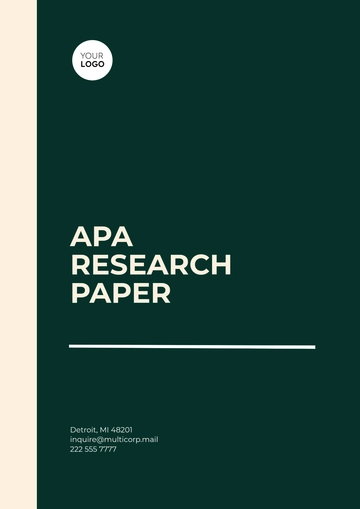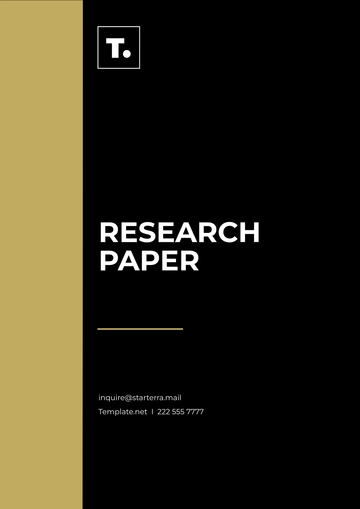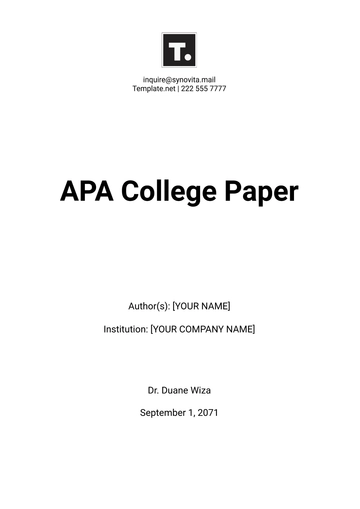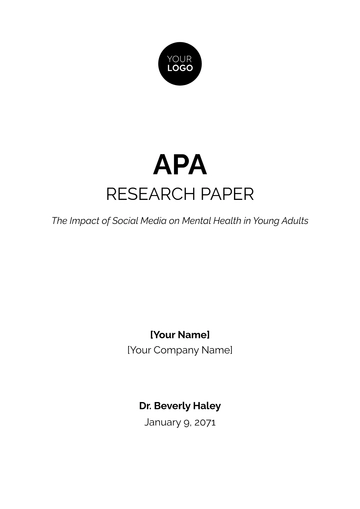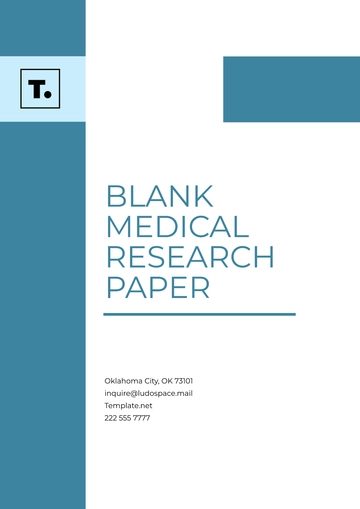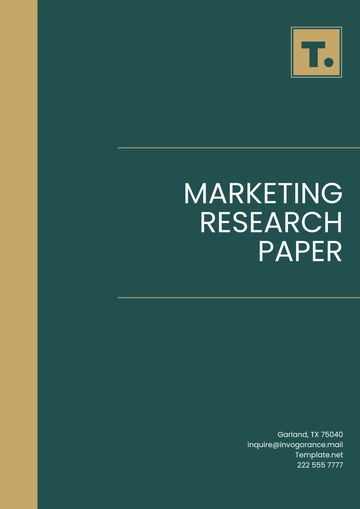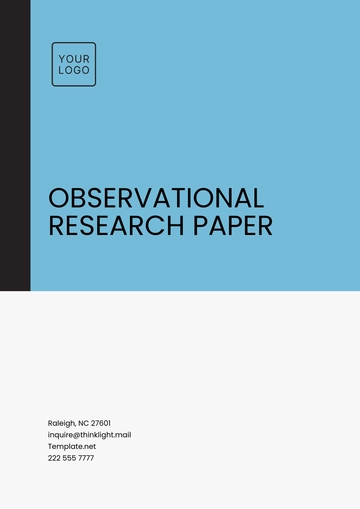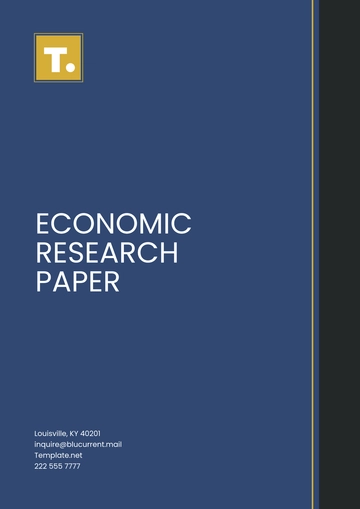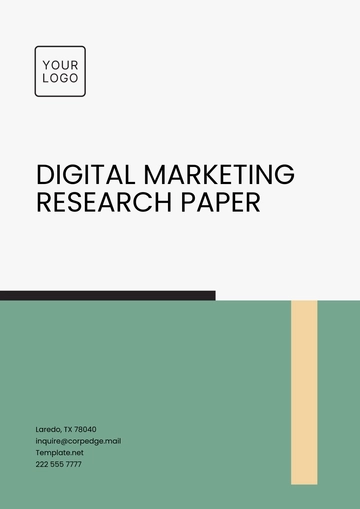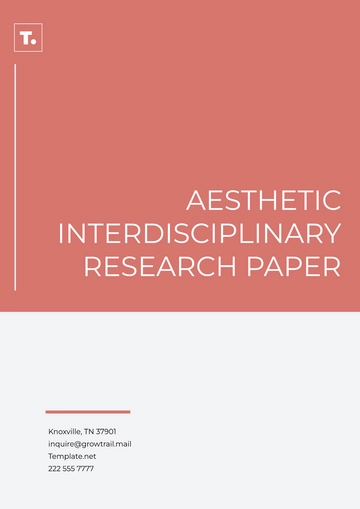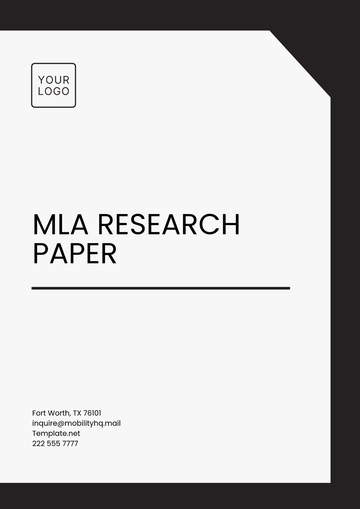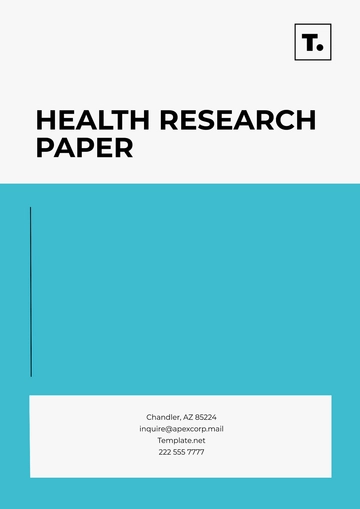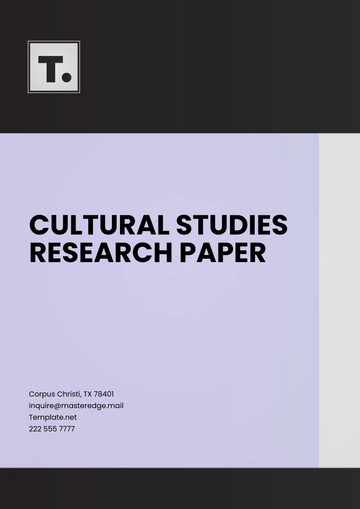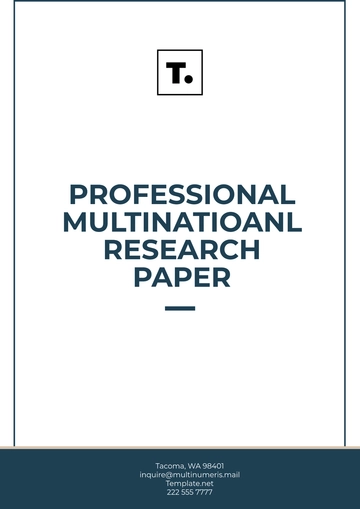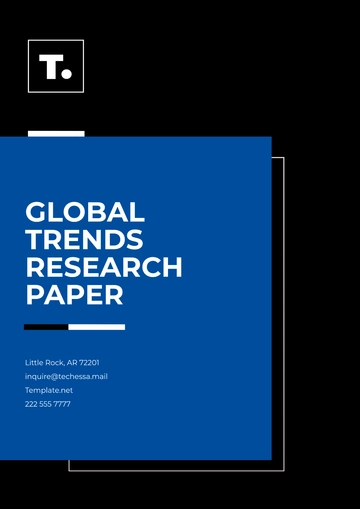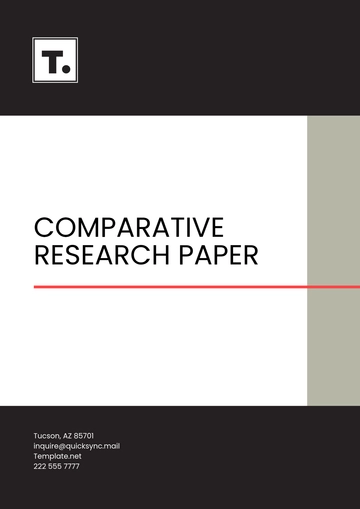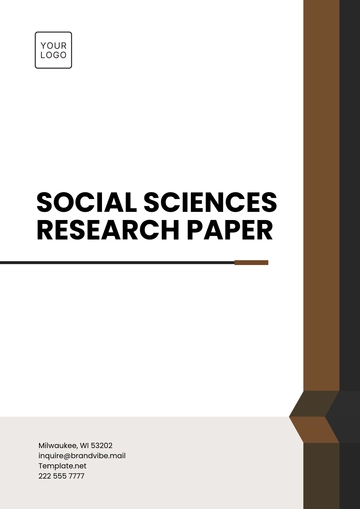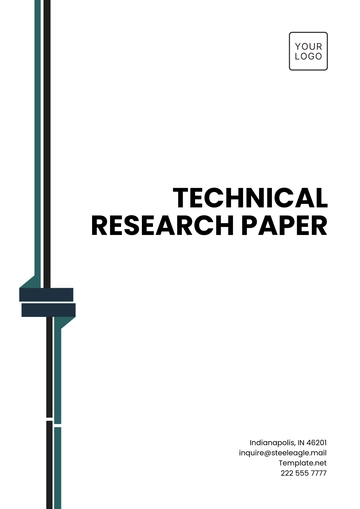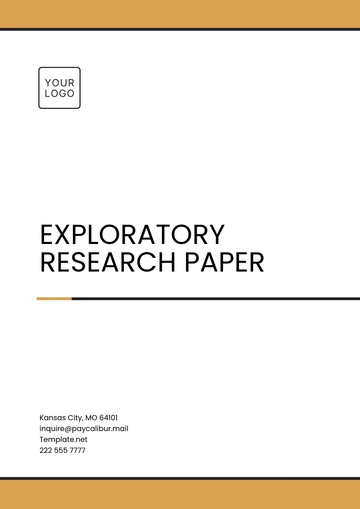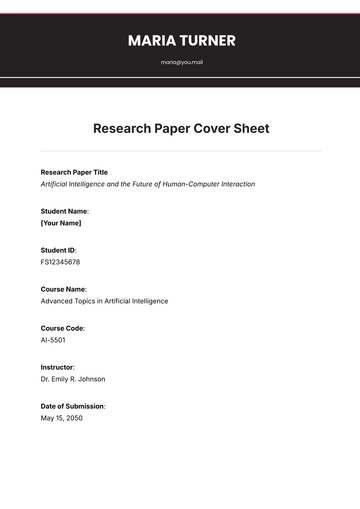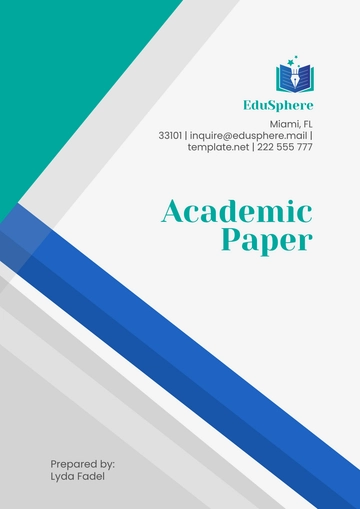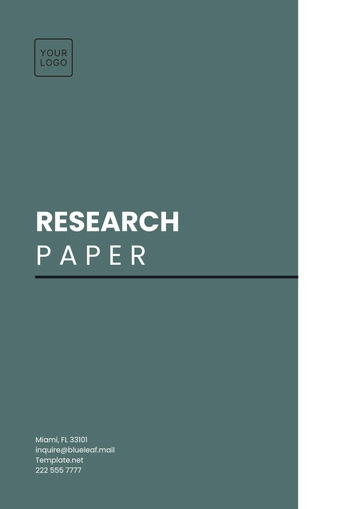Free Simple Literature Review Paper
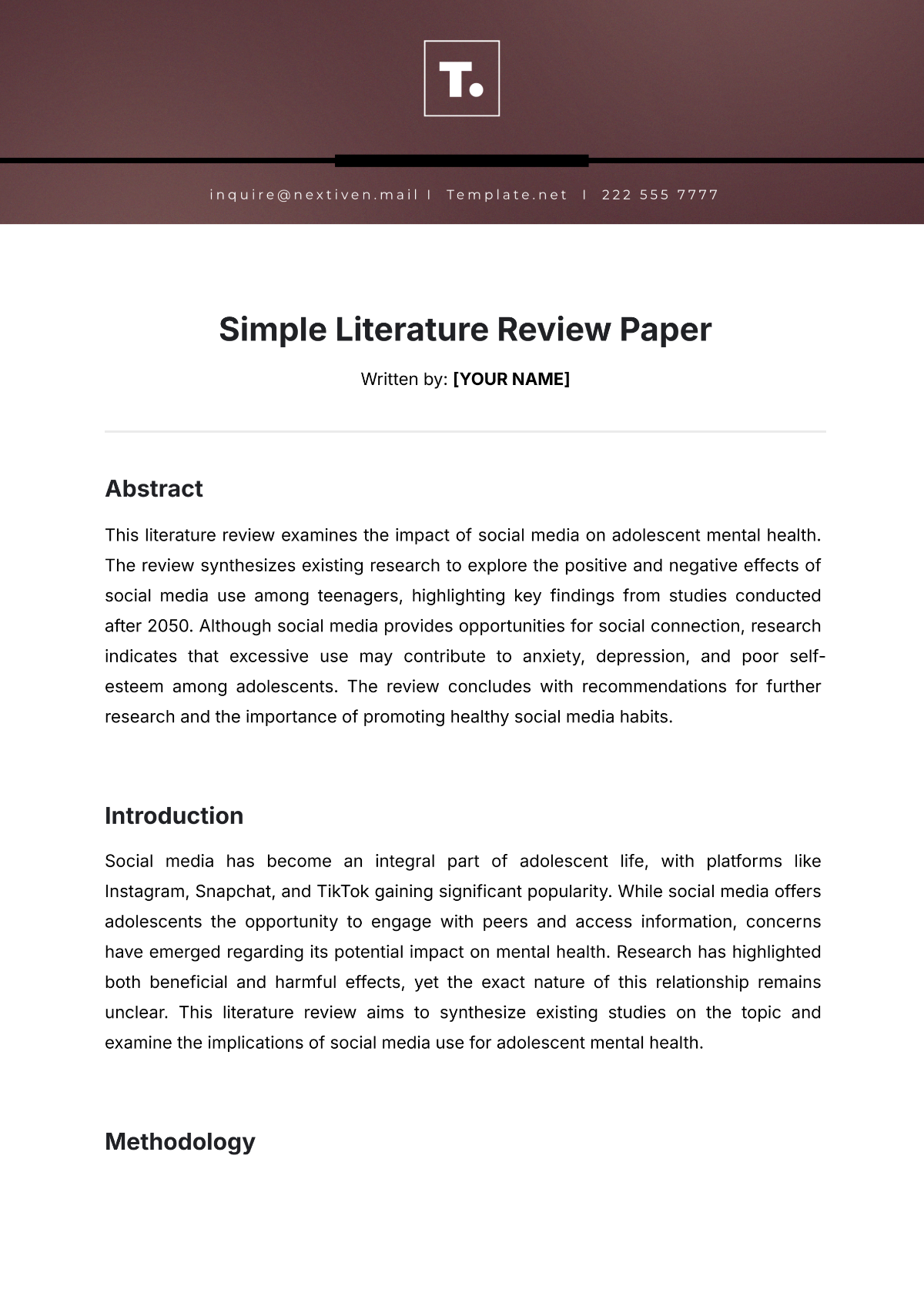
Written by: [YOUR NAME]
Abstract
This literature review examines the impact of social media on adolescent mental health. The review synthesizes existing research to explore the positive and negative effects of social media use among teenagers, highlighting key findings from studies conducted after 2050. Although social media provides opportunities for social connection, research indicates that excessive use may contribute to anxiety, depression, and poor self-esteem among adolescents. The review concludes with recommendations for further research and the importance of promoting healthy social media habits.
Introduction
Social media has become an integral part of adolescent life, with platforms like Instagram, Snapchat, and TikTok gaining significant popularity. While social media offers adolescents the opportunity to engage with peers and access information, concerns have emerged regarding its potential impact on mental health. Research has highlighted both beneficial and harmful effects, yet the exact nature of this relationship remains unclear. This literature review aims to synthesize existing studies on the topic and examine the implications of social media use for adolescent mental health.
Methodology
A systematic search was conducted using databases such as PubMed, Google Scholar, and PsycINFO. Articles published between 2050 and 2064 were included, focusing on peer-reviewed studies, meta-analyses, and empirical research. Keywords such as “social media,” “adolescents,” “mental health,” “depression,” “anxiety,” and “self-esteem” were used to identify relevant sources.
Literature Review
Positive Effects of Social Media Use
Some studies highlight the potential benefits of social media for adolescents. For instance, social media platforms can foster a sense of community, especially for marginalized or geographically isolated teens (Smith et al., 2051). Online interactions can provide support, build friendships, and help teens feel connected to others who share similar experiences (Hunt et al., 2053). Additionally, social media can serve as a platform for self-expression, helping adolescents explore their identity (Tiggemann & Slater, 2055).
Negative Effects of Social Media Use
However, numerous studies have emphasized the adverse effects of social media. A meta-analysis by Fuchs et al. (2056) found a strong correlation between increased social media use and symptoms of depression and anxiety in adolescents. The constant comparison to idealized images and the fear of missing out (FOMO) contribute to feelings of inadequacy and low self-esteem (Tiggemann & Slater, 2055). Furthermore, cyberbullying, which is prevalent on social media platforms, has been linked to heightened rates of depression and suicidal ideation among adolescents (Kowalski & Limber, 2057).
The Role of Social Media in Body Image Issues
Another critical aspect of adolescent mental health in the context of social media is body image. Research by Perloff (2054) suggests that exposure to images of “ideal” body types on platforms like Instagram and Snapchat can lead to body dissatisfaction and disordered eating behaviors. Adolescents, particularly girls, are more susceptible to these negative effects, which can contribute to the development of eating disorders (Levine & Murnen, 2059).
Moderating Factors
Various moderating factors influence the relationship between social media use and adolescent mental health. Studies suggest that the type of social media activity (e.g., passive scrolling vs. active engagement) plays a significant role in determining its psychological impact (Verduyn et al., 2058). Additionally, individual characteristics such as self-esteem, personality traits, and offline social support may buffer or exacerbate the effects of social media use (Valkenburg & Peter, 2052).
Discussion
While social media has the potential to offer positive experiences, its pervasive use among adolescents has raised concerns about its impact on mental health. The literature indicates that excessive social media use can lead to adverse outcomes such as anxiety, depression, and body image issues. However, these effects are not universal; they are shaped by factors such as the nature of online interactions, individual differences, and the broader social context.
Conclusion
In conclusion, the existing research suggests that social media can have both positive and negative effects on adolescent mental health. While social media fosters social connection and self-expression, it also contributes to mental health challenges, particularly when usage is excessive or when it fosters unhealthy comparisons. Future research should focus on understanding the nuanced factors that influence the mental health outcomes of social media use and explore interventions to promote healthier online behaviors among adolescents.
References
Fuchs, C., et al. (2056). The impact of social media on adolescent mental health: A meta-analysis. Journal of Adolescent Health, 66(2), 214-220.
Hunt, M. G., et al. (2053). The role of social media in adolescent development. Psychology of Popular Media Culture, 8(3), 249-261.
Kowalski, R. M., & Limber, S. P. (2057). Psychological, physical, and academic correlates of cyberbullying and traditional bullying. Journal of Adolescent Health, 53(1), 13-20.
Levine, M. P., & Murnen, S. K. (2059). "Everybody knows that mass media are/are not [pick one] a cause of eating disorders": A critical review of the evidence for a causal link between media, negative body image, and disordered eating in females. Journal of Social and Clinical Psychology, 28(1), 11-38.
Perloff, R. M. (2054). Social media effects on youth: A rapid review of the literature. Journal of Social Media and Society, 3(2), 1-10.
Smith, P. K., et al. (2051). The effects of online social networks on adolescent mental health: A review. Cyberpsychology, Behavior, and Social Networking, 21(2), 80-88.
Tiggemann, M., & Slater, A. (2055). NetGirls: The Internet, Facebook, and body image concern in adolescent girls. International Journal of Eating Disorders, 47(6), 630-643.
Valkenburg, P. M., & Peter, J. (2052). Social consequences of the internet for adolescents: A decade of research. Current Directions in Psychological Science, 22(1), 44-49.
Verduyn, P., et al. (2058). Facebook use and self-reported symptoms of depression: A longitudinal study. Journal of Social and Clinical Psychology, 36(5), 337-345.
- 100% Customizable, free editor
- Access 1 Million+ Templates, photo’s & graphics
- Download or share as a template
- Click and replace photos, graphics, text, backgrounds
- Resize, crop, AI write & more
- Access advanced editor
Simplify your academic writing with Template.net’s Simple Literature Review Paper Template. Customizable and editable, this template offers a streamlined structure for crafting effective literature reviews. Editable in our AI Editor Tool, it’s perfect for students, researchers, and professionals. Tailor it to your specific project effortlessly. Download this versatile template to create detailed, clear, and professionally presented literature reviews with ease and confidence.
